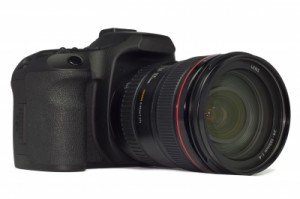 For some reason, newer photographers get all mired up in the gear, it’s ALL about the gear. Believe me, it’s NOT about the gear and it’s especially NOT all about what camera body you have.
For some reason, newer photographers get all mired up in the gear, it’s ALL about the gear. Believe me, it’s NOT about the gear and it’s especially NOT all about what camera body you have.
For a long time, I felt embarrassed about my camera bodies. I started off with a Nikon D50 when I switched to digital in 2006. Since I am a firm believer in backup gear, I had multiple D50s. Upgrading bodies is an expensive proposition for me, so when I upgraded in 2009, I bought multiple copies AGAIN.
Yep, I’d like to upgrade again, but when I look at the several thousand dollar price tag on the body I want and multiply that times two or three, I put it on the wishlist and forget about it for awhile.
I’m a realist. If I intend on dropping $7500, I need to justify that purchase with increased revenue. I’m not in business to spend more money than I make. That’s counterproductive. And bad business. Yes, there’s a new body or two with better low ISO handling, but the jobs where I would utilize this feature are not high profit jobs and my current bodies handle low ISO adequately (just not stellarly), so I can’t justify the expenditure.
Another consideration is this – do you really NEED the new body, or you just trying to keep up with your photographer buddies? I’ve done just fine thankyouverymuch with the bodies I currently use and every award-winning print hanging in my studio was created using them.
If you’re currently wishing for a new body and you’re absolutely convinced that your work would be better, if only you had a new camera, I want you to stop and do some honest reflection.
- Do you really know how to use your camera to its fullest potential?
- Have you read your camera manual?
- Have you experimented with all the settings and done research for more help if you are stuck on a concept?
- Do you know how to shoot in manual mode?
If you answered “yes” to all of the above and you can afford the upgrade without putting your net profit into the net loss category, then go for it. If you answered “no” to any question, I’m going to take a wild guess and say that the problem with your work lies in your knowledge and skill level, and cannot be necessarily blamed on your equipment.You, not your camera, is holding you back.

Please dont think this a stupid question…but I have never used a DSLR camera and have heard that I should start with a bridge camera first to “ease” my way into the SLR cameras…what do you think of this advice?
The only stupid question is the one unasked.
Hmmm. I’ve never heard of someone giving or receiving this advice. I can see where it makes sense,,,in a way. It sounds like the advise from someone who is afraid you will spend the money on a DSLR and then never use it because it’s “too hard,” thereby wasting your money. Franky, I think a DSLR can act a s a “bridge camera” ( a term I’ve never heard of , but I think I “get” it). Most DSLRs have a fully automatic capability. Buy one, use the AUTO feature until you’re comfortable with the camera and then gradually start learning all the functions your camera is capable of.
Thank you!!! There really is a lot of pressure from other photogs out there to go full frame and that a ‘real’ pro has only top-of-the-line equipment. Most clients don’t care, nor do they know the difference. I’m excited to read your post on glass. I’m becoming quite the lens whore. 😉
Hi Timorah – There are definite advantages to going full frame, but that’s a personal decision and doesn’t really enter into the realm of the kind of business advice I lean toward, so you’re safe from that debate here. 🙂
Amen. I have had my Canon Rebel XT for 2 years and LOVE it. (it’s the glass, anyway!) I don’t give a pooh if someone thinks I’m less-than because of it. It was what I could afford, and I learned EVERYTHING on it. I shoot in creative modes (Av and Tv) most of the time. I know how to use it manually but after doing that for 2 months I got tired of missing shots so I went back to what I was comfy with. Whenever I DO upgrade, it will be another Rebel (T2i) because at this point it’s what I can afford and I really do not need a 7D or 60D for what I am doing.
Hi Greta – I would encourage you to continue to try and work with manual modes. That’s something you’ll really want to get a handle on and you’ll be glad you did once you get comfortable with it. Wootness!
I’m right where you are, Christine and I totally agree with you when it comes to camera bodies. I’ve invested my money in my lenses and those will last me a lifetime since I’m a Nikon girl and I don’t think they plan on changing the mount! Would I like a new camera? Yeah. Do I need a new camera? Sorta. Can I justify a new camera? Almost.
My current Nikon D2Xs is a sweet beastie of a camera but it suffers in low light and has issues with noise at anything over ISO 640 – and 640 is totally pushing it and I know I’m gonna have to use noise filtering.
My backup is an ancient but perfectly serviceable D100, but anything over ISO 400 is a no-go on that one! LOL
Sure, other photographers and maybe even clients may have newer “nicer” cameras than mine, but I bet you dimes to dollars they haven’t invested in the good lenses. I have to admit, I will sometimes giggle when I see someone with a D3 using a kit variable aperture zoom lens on it. (and you just know they’re shooting on “P for Professional” LOL)
Twila, you’re reading my mind. The next “gear” article will be on glass. I have a stellar glass collection that will last for a great while. Wootness!
I totally agree. I have been using my 8 year old Rebel until this May. I read my manual. I use Manual (99% of the time) and I researched which camera would be right for me for literally MONTHS. I finally upgraded. And although my new camera hasn’t changed my technique or how I operate, it did make a huge difference because it is faster and offers many more options to help me make my photos better. At the same time, some of my most precious photos have come from my little point and shoot. It really isn’t about the camera, it is how you use all your other knowledge.
I’ve been shooting with a combination of a D60 and/or a D3100 for a couple of years. I feel like I’ve really come to know them inside and out. I’ve been trying to convince myself that I DON’T need a D700 since I can’t afford it, because I don’t charge enough, because I don’t feel like I’m worth it…. But my camera isn’t compatible with my favorite lens (50mm f/1.4) and it slows me down having to focus manually. And sometimes I loose some of my favorite shots because I was focused on her ear instead of her eyes and that makes a big difference at 1.4…. Grrrrr….
Oh and I’m usually embarrassed by my cameras. Especially when a client tells me they have the same one or the next step up. But I try to tell myself that it’s not the violin, but the violinist that makes the magic. If the camera knows it’s job better than I do then I’m not doing my job right.
Hi! Don’t get embarrassed – its what is behind the camera that matters 😉 I know how you feel about the 700. I saved pennies for a (long) while to be able to get that, and I shot with my D90 forever before that. (My first digital camera was a D70 6 years ago). You can try to find used cameras, or even look into the 7000 if you don’t want to go full frame (thats a killer camera too!) I was chasing sharpness, and after getting some nice glass (85 1.4) and not being totally happy I realized it was because it wasn’t on a full frame camera. Mind you most of my clients prob don’t know the difference, but I do lol. The 700 is totally worth the ramen I ate lol, but I firmly believe although the equipment helps to a point, it is the user that makes the difference. Learn your camera, work what you got, and save your pennies. Remember it is an investment in yourself/business.
Just saw this- thanks Adrienne 🙂